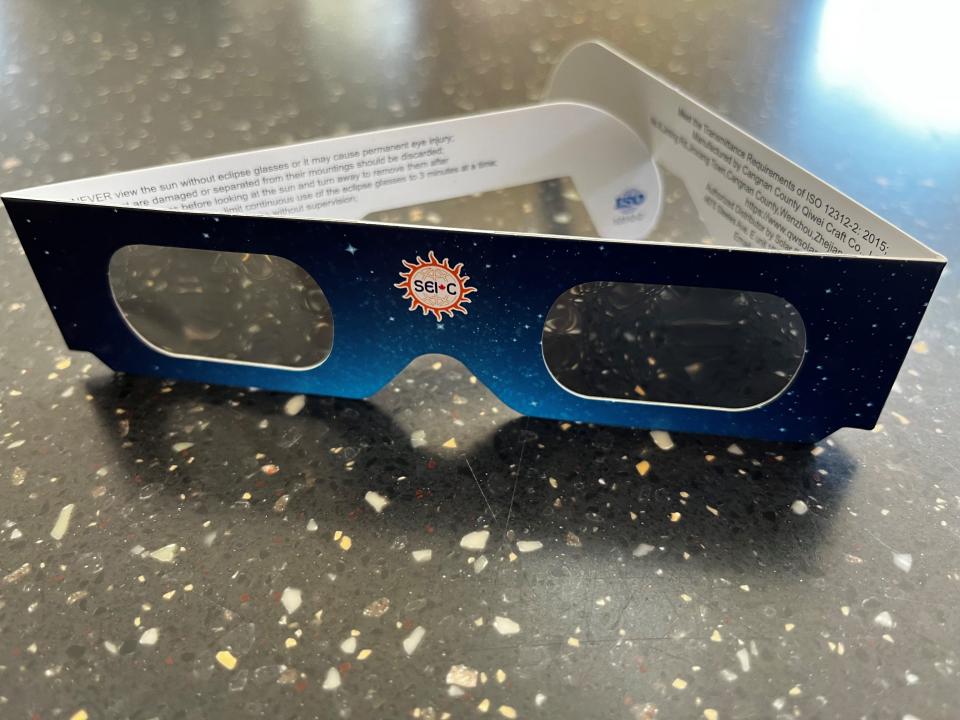'Be ready for about anything': Traffic jams weekend of eclipse will fluctuate with weather
Traffic will be heavily congested in Ohio at some point the weekend of the April 8 total solar eclipse.
Exactly when the state's roads will be most backed up, though, depends on the weather, Deloris Mlay, president of the Richland Astronomy Society, explained last week to emergency responders from Richland County.
The eclipse will enter western Ohio about 3:10 p.m. April 8, a Monday, near the city of Greenville in Darke County, according to a NASA map.

The path of the eclipse will travel northeast, reaching Cleveland by 3:15 p.m. Viewers will see the full eclipse for nearly four minutes.
People who chase eclipses are known as umbraphiles; the word literally means "shadow lover."
'Be ready for about anything'
The state's influx of guests is expected to begin Friday, April 5.
Traffic won't be bad at first, since people will trickle into the Buckeye State over a three- or four-day period.
All weekend, the eclipse chasers will watch closely for new weather forecasts.
"Be ready Sunday night," Mlay said.
That's because if the weather predictions turn cloudy for Monday's viewing, then people who have traveled to the region for the eclipse will leave and drive overnight toward clear skies.
Or, the reverse could be true — travelers elsewhere could encounter bad news and drive here for better views.
"They will move our way if the weather is not looking good," Mlay said.
No matter the forecast that weekend, motorists are expected to be traveling to, from or through North Central Ohio to see the eclipse.
"My advice is to be ready for about anything," Mlay said.
Roads will likely be jammed as soon as the eclipse is over
Expectations are that nearly 250,000 guests will travel to the Mansfield area the weekend of the eclipse, along with millions more statewide, according to Rebecca Owens, director of the Richland County Emergency Management Agency.
If the skies are clear and everyone stays in North Central Ohio for the eclipse, then roads will become clogged by about 3:30 p.m. when they all try to leave. The congestion could last well into the night.

Mlay told the first-responders that she experienced the same on Aug. 21, 2017, when she visited Gatlinburg, Tennessee, to watch the total solar eclipse that stretched from Oregon to South Carolina.
When that eclipse was over, everyone packed up and tried to leave at once.
"It was bumper-to-bumper," Mlay said. "It was shocking."
It took her 11 hours to drive from Gatlinburg to Louisville, Kentucky, a journey that Google Maps projects should take only 4 hours, 46 minutes.
"Gas stations were putting bags over their pumps," Mlay said. "They were out of gasoline."
Will the sky be clear for the April 8 total solar eclipse?
Clear skies are far from being a guarantee in Ohio for April's total solar eclipse.
National Weather Service data collected over the years at the Mansfield Lahm Regional Airport paints a confusing picture for those attempting to guess what to expect.
The average high temperature for April 8 is 57 degrees. The average low is 36.
The record high of 81 for that date was set three years ago in 2021.
The record low of 15 was set in 1982.
The weather service has no records of visibility, but meteorologists do track precipitation levels, which are often a good indication of whether there was cloud cover that day.
In 2015, a record 1.48 inches of rain fell on April 8. In 1974, there was a record 2.1 inches of snow.
Since April is considered a transitional weather month between spring and summer, there's no telling what might happen the week of the eclipse.
ztuggle@gannett.com
419-564-3508
This article originally appeared on Mansfield News Journal: Eclipse chasers could change their plans based on weather forecasts

